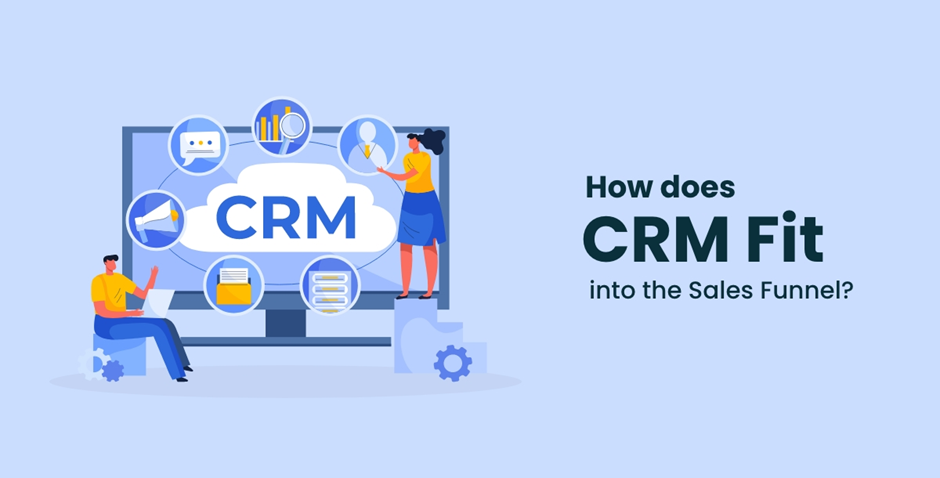How does CRM Fit into the Sales Funnel?
When a prospect becomes aware they want a product or service,
their buyer's journey begins. As they move towards purchase, they travel
through various stages of their buyer's journey. Many
potential customers have already been lost at multiple funnel stages when they
purchase your product.
CRM (Customer
Relationship Management) are a powerful tool that helps businesses manage
customer data and improve communication with potential and existing customers.
But how exactly does it fit into the sales funnel? Here is how CRMs can help
sales teams to optimise their processes at each stage of the sales funnel:
1.
Awareness Stage
The awareness
stage is the first sales funnel stage, where potential customers become aware
of your product or service. They might come across your business through
advertising, social media, or search engine results. At this stage, a CRM can
track website visitors, lead capture forms, and other interactions with
potential customers.
A CRM can help by:
·
Capturing Leads: By tracking website visitors, a CRM can
capture leads and help sales teams to understand where these leads are coming
from. This information can be used to optimise advertising and marketing
efforts.
·
Qualifying Leads: A CRM can help filter out unlikely leads by
collecting information such as budget, industry, and job title. This can help
sales teams focus their efforts on leads most likely to convert.
2.
Consideration Stage
In the consideration stage, potential customers start to evaluate their
options and compare different products or services. At this stage, a CRM can provide
personalised communication and ensure that potential customers receive the
information they need.
A CRM can help by:
Providing Personalized Communication: By tracking customer interactions and
preferences, a CRM can give personalised communication tailored to each
individual's needs. This can include targeted emails, follow-up calls, and
other communication channels.
Tracking Customer Behavior: A CRM can track customer behaviour, such as website visits, email opens, and content downloads. This information can tailor communication and provide more relevant information to potential customers.
3.
Decision Stage
In the decision stage, potential customers decide to purchase your
product or service. A CRM can be used to ensure that the sales process is
smooth and that potential customers have all the information they need to make
an informed decision.
A CRM can help by:
Tracking the Sales Process: A CRM can track the entire sales process from
lead capture to close. This information can be used to identify bottlenecks and
optimise the sales process.
Providing Information: A CRM can provide pricing, product features,
and customer testimonials to help potential customers make informed decisions.
4.
Retention Stage
In the retention stage, existing customers are retained and encouraged
to make repeat purchases. A CRM can track customer behaviour and provide personalised
communication to keep customers engaged and loyal.
A CRM can help by:
Providing Personalised Communication: A CRM can track customer behaviour and provide
personalised communication tailored to each individual's needs. This can
include targeted emails, follow-up calls, and other communication channels.
Identifying Opportunities: A CRM can identify opportunities for
cross-selling and upselling by tracking customer behaviour and preferences.
CRMs can be essential tools for optimising the sales funnel. By
providing personalised communication, tracking customer behaviour, and
streamlining the sales process, a CRM can help sales teams to close more deals
and retain more customers. Whether you're just starting or looking to improve
your existing sales processes, a CRM can be an invaluable tool for improving
your bottom line.
Workbooks are one of the most popular CRM solutions in the market. The
company's CRM model is great for companies with multiple locations and a remote
workforce. Their software is powerful and flexible and scales to meet the needs
of any business. The company helps businesses operate effectively, increase
sales, and build meaningful relationships with those they serve.

Comments
Post a Comment